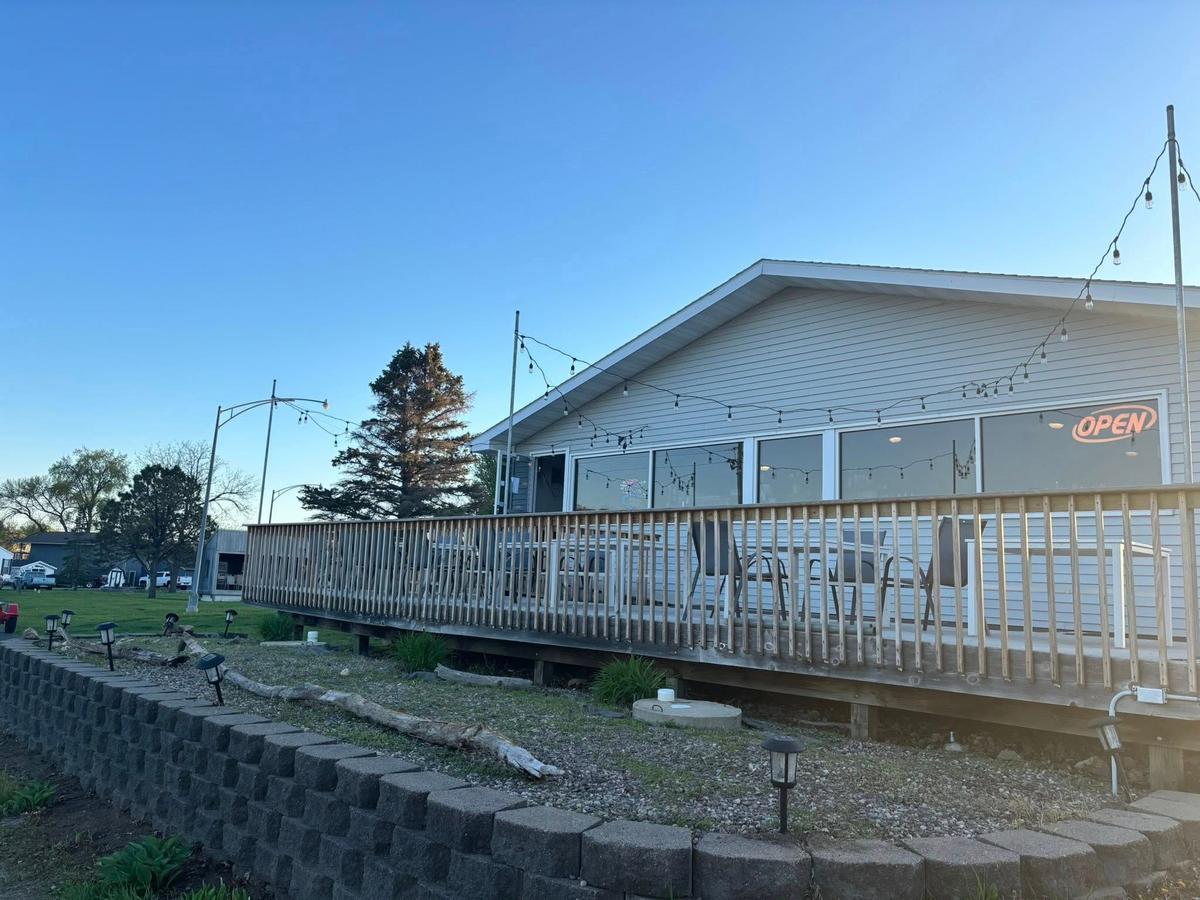Copyright dailypost

When Joey Staerkle bought grade II-listed Ivy House, it had seen better days. But as a potential holiday let, its appeal was obvious: a stone’s thrown from Conwy’s High Street, with its artisan delicacies, plush hotels and historical sites, the property’s location could scarcely be better. Converting it from a home to a holiday let appeared something of a departure for the former beauty queen from Llandudno . But after being crowned Miss Intercontinental Wales, Joey showed she had brains as well as looks when graduating with a First Class Honours degree in business. Now in her late 20s, with more than 65,000 Instagram followers, and another 32,000 on TikTok, she has style too: guests have been super impressed by the quality of the conversion, which combines contemporary living with historical preservation. There is a touch of opulence too, like the hand-carved bed she imported from France. Yet she fears the business is being undermined by factors outside her control. Chief among these is the 182-day letting rule introduced by the Welsh Government in an attempt to ensure self-catering holiday lets are treated as genuine businesses for tax purposes. It was implemented to address concerns that second homes were being used as holiday lets to avoid paying council tax. Like many others in the sector, Joey fears genuine holiday lets are being unjustly penalised by a letting threshold that’s set too high to be reasonably attainable. She said: “My holiday let was an abandoned, uninhabitable property that we restored and brought back to life. “By turning it into a holiday home, we invested in the local economy, supported tourism jobs and helped to preserve Conwy’s heritage, all without reducing housing availability for local people. Join the North Wales Live Whatsapp community now “The current 182-day rule doesn’t reflect the reality of tourism in Wales. Coastal towns like Conwy are vibrant in summer but naturally quieter in winter and even with strong marketing, it’s hard to meet the current threshold during off-peak months when demand naturally drops. Many owners face real challenges staying compliant, and it isn’t a sustainable way to run a small business.” Failure to meet the 182-day threshold leaves holiday let providers open to punitive council taxation rather than business rates. Facing criticism it was too onerous, the Welsh Government is consulting on potential tweaks. Critics say they don’t go far enough – and that the policy is misguided anyway. “The narrative that holiday lets are a primary cause of Wales’ housing crisis is simply untrue,” said Ben Spier, head of policy and regulation at Sykes Holiday Cottages, a major booking platform. “These businesses are being scapegoated for deeper, structural issues – chiefly, the long-standing failure to meet home-building targets and the tens of thousands of vacant properties lying empty across Wales. “Unlike second homes, which often sit empty for most of the year, holiday lets generate ongoing economic benefit. Yet they have to pay the council tax premiums intended for second homes if they don’t meet this high threshold. “The 182-day rule is considered a metric to identify whether a business is genuine or not, but no other business is measured in this way. For example, a pub is still a business however many pints it pulls a year. “So, if such a threshold is to be used fairly, without unintended consequences, it needs to be used solely to differentiate between second homes and holiday let businesses. Clearly, many genuine holiday let businesses can’t meet the existing threshold which suggests it’s far too high.” Such a blunt tool fails to take into account the nuanced challenges faced by short-term lets, said Ben. For example, it doesn’t consider the current trend towards shorter stays, which is making it increasingly difficult for business owners to block book. Nor does the 182-day rule acknowledge the work needed to run a holiday let such as preparing, maintaining and renovating a property. Accounts need sorting, bookings must be organised and the business requires ongoing promotion on social media and elsewhere. “Furthermore, the current threshold doesn’t consider the other disruptions to running a micro-business,” said Ben. “Examples include maternity and paternity leave - no other job would be allowed to not make provision for this. Significant illness to the operator or a family member, or forced business closure for flooding or refurbishment, are other factors.” A report Sykes conducted with Oxford Economics found that short-term let-linked spending contributed nearly £3bn to Wales’ GDP and supported around 67,000 jobs in 2021. According to Ben, many of these jobs are flexible, family friendly and carer-friendly. “These businesses are not idle assets – they’re engines of employment, supporting cleaners, tradespeople and the small businesses that rely on visitor spend,” he said. Since the rule’s introduction, many owners have struggled to meet the high threshold no matter how hard they try. Shorter average stays, strong seasonality and lower off-peak demand make achieving 182 letting days a challenging target at the best of times, particularly in rural areas. Proposed adjustments, currently out for consultation, include allowing businesses to use average bookings over multiple years. The idea is to prevent owners being penalised by a one-off bad year. Charitable stays could also be allowed to count towards booking targets. While the proposals offer some flexibility, critics says they fail to address the core issues: that the bar is too high and that holiday lets are fundamentally different from second homes. A national email campaign launched by a holiday let owner is pressing the Welsh Government for a lower bookings threshold. In response, Mark Drakeford, Cabinet Secretary for finance and the Welsh language, said Valuation Office Agency data shows 60% of holiday lets in Wales have hit the 182-day threshold. This exceeded the levels predicted by the self-catering sector as well as historical occupancy estimates outlined in a regulatory impact assessment, said the minister. He indicated the policy had already accomplished what it set out to achieve. “The number of self-catering properties now in the ratings list is similar to the number listed in 2019, prior to the substantial proliferation of holiday lets during the early 2020s,” he said. “Numbers increased by 60%, from 7,000 to over 11,000, between April 2019 and April 2023. "Many properties in all parts of Wales have met the new letting criteria, demonstrating that is achievable where supply does not exceed demand.” A 12-week consultation on the criteria ran in 2021. Mr Drakeford said this gave a clear mandate for a higher threshold, though he accepted the commonly preferred figure was for 105 days. “The Welsh Government is not duty bound to accept the most common specific response to a consultation,” he added. The approach taken was designed to “incentivise the right balance” between a thriving tourism sector and viable local communities, added the minister. Joey’s other talents include singing and swimwear design. As a model, she’s appeared on two BBC reality series, and Ivy House itself was the setting for an edition of the BBC’s This Is My House. Moreover, holiday letting runs in the family . She supports the principle of tackling underused second homes - but she wants to see a meaningful lowering of the bookings threshold. “Averaging the 182-day requirement over several years is a step forward, but it still doesn’t solve the issue as the number itself is unrealistic,” she said. “With only around 126 high-season nights in Wales, a lower threshold would be far more achievable for genuine, small-scale holiday lets. “Policymakers should be distinguishing between empty second homes and active businesses. And instead of penalising responsible operators, councils should be supporting them. These are the people who keep heritage properties alive and contribute meaningfully to local tourism.” According to Ben, the High Court’s ruling on Gwynedd’s Article 4 Direction was a reminder of the need for regulation based on sound evidence. The court’s decision underlined a broader problem, he said – that well-intentioned regulation, when poorly designed or executed, risks penalising legitimate businesses without solving the underlying issues. Targeting holiday lets won’t solve the housing crisis, said Ben. “Building more homes, tackling land banking by developers and bringing Wales’ 22,000 underused or vacant properties back into use would make a far greater difference. “A one-size-fits-all approach to occupancy thresholds ignores the seasonal nature of tourism, regional variations in visitor demand and the operational realities of running a small rural business. "Lowering the threshold would make the system fairer and more flexible, protecting local jobs and maintaining the vibrancy of Wales’ tourism industry.” Sign up for the North Wales Live newsletter sent twice daily to your inbox See what's on in your area



